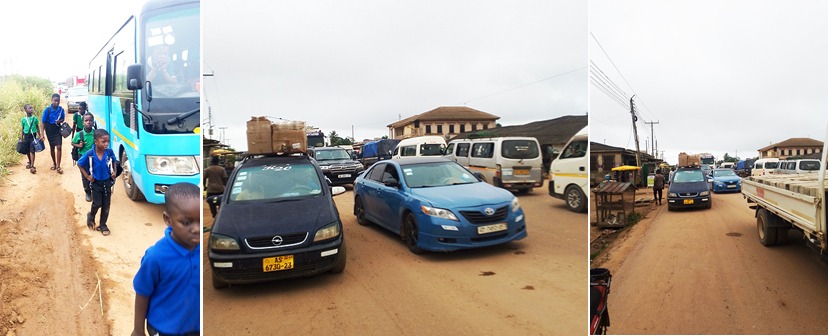
By Bright Peter Kwaku BOATENG
A young university student receives a message on her phone. The sender threatens to release her intimate images unless she pays. Fear sets in fast. This is sextortion. It is a growing cybercrime that uses blackmail to exploit victims.
Criminals rely on fear, fake profiles, stolen images, and deception. Many use deepfake technology to create convincing fake content. This is no longer rare in Ghana.
Rising threat in Ghana
Ghana is recording a sharp rise in sextortion cases.Between January and April 2024, the Cyber Security Authority (CSA) recorded 155 cases. Victims lost a total of GH¢103,663. Many were young people aged 18 to 24. Most were university students with limited digital literacy.
In the same period in 2025, the number of cases remained 155, but financial losses climbed to GH¢499,044. This represents a fivefold increase in one year.
On 31 July 2024, the CSA announced that 226 sextortion and online blackmail cases were recorded between January and July 2024. Criminals often use fake female accounts to lure their targets. Victims were pressured into sharing intimate content, which was later used to demand money.
A teenage victim said, “I thought he was real. We talked for weeks before he asked for a photo. That one photo is what they used against me.”
In July 2024, 68 Ghanaians were among 260 suspects arrested in a pan-African sextortion and romance scam operation. Ghana is both a target and a base for organized digital scams.
Ghana’s population is about 35 million. With 155 reported cases in four months, the projected annual figure is about 465 cases, or 1.4 cases per 100,000 people. These figures reflect only what is reported. Many victims stay silent because of fear, shame, or stigma.
Global Picture
Sextortion is rising worldwide.
In 2022, the U.S. National Centre for Missing and Exploited Children received 10,731 reports of financial sextortion involving minors. In 2023, this number jumped to 26,718. The Internet Watch Foundation recorded six actionable cases in 2021 and 176 in 2023.
Teenage boys are frequent targets. Criminal networks operate from West Africa and Southeast Asia. They use fake accounts, deepfake content, and encrypted apps to trap victims. Payments flow through mobile money, fintech platforms, and cryptocurrency.
Using U.S. data as a reference, sextortion reports equal about 8 cases per 100,000 people annually. Ghana’s lower number reflects under-reporting, not lower risk.
Why It Matters
Sextortion is not only about money. It destroys trust, dignity, and personal security. Victims live with fear and shame. Some consider suicide. Once money is paid, the demands often increase.
The sharp rise in financial losses shows that these criminal networks are becoming more organized and more aggressive. If this is not addressed quickly, the impact will grow.
Preventing Sextortion
Government and Regulators
- Build stronger and confidential victim reporting systems.
• Enforce laws on sexual exploitation and extortion.
• Strengthen specialized cybercrime units.
• Ensure platforms remove reported content within 24 hours.
Technology Platforms
- Strengthen privacy controls for young users.
• Detect and block suspicious accounts early.
• Work closely with law enforcement to remove blackmail content fast.
Financial Sector
- Monitor and flag suspicious transfers linked to sextortion.
• Block payments to known scam networks.
• Train staff to identify sextortion-related transactions.
Schools, Parents, and Youth
- Teach online safety early and consistently.
• Warn students about risks of sharing intimate content.
• Encourage fast reporting when threats happen.
• Build trusted support systems to reduce fear and silence.
Victims
- Do not pay.
• Save all chats, screenshots, and payment records.
• Report to the CSA or the police immediately.
• Seek professional mental health support.
Ghana vs Global Rates
Ghana reports fewer cases than the U.S. but loses more per victim. The U.S. saw its numbers double in one year. Ghana saw financial losses grow fivefold. Criminals are becoming bolder and more strategic. Ghana must act before the situation reaches global levels.
Call to Action
Sextortion is here. It affects young people, families, schools, and national security. Ghana has the laws, but more vigorous enforcement and faster response are needed. Awareness must increase. Victims need support without stigma.
Everyone has a role. Report incidents. Protect your data. Guide young people online. Technology companies must act with responsibility. Sextortion grows in silence. Ghana must act.
Bright is a Cybercrime and Digital Forensic Investigator
Founder, Young Cyber Knights Foundation
Email: [email protected]
Website: www.youngcyberknightsfoundation.org
LinkedIn: linkedin.com/company/young-cyber-knights-foundation
Phone: 233553141199
The post Sextortion: Rising threats, hidden victims, urgent action appeared first on The Business & Financial Times.
Read Full Story

















Facebook
Twitter
Pinterest
Instagram
Google+
YouTube
LinkedIn
RSS